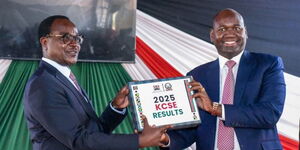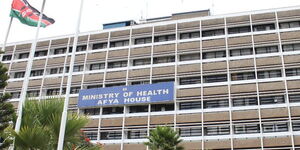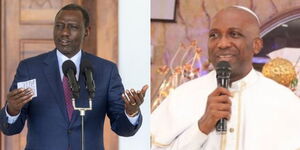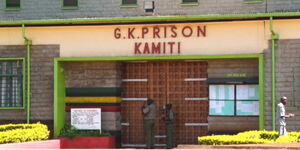A recent parliamentary report has shed light on the alarming reality that only one out of 39 state agencies has met the mandated hiring quota for people with disabilities.
The survey conducted by the National Assembly Committee on National Cohesion and Equal Opportunity exposes the widespread non-compliance among most state agencies with legal requirements.
According to Article 54(2) of the Constitution, both elective and appointive positions in public bodies should have a representation of at least five per cent by persons with disabilities.
However, the committee's examination of 39 state agencies indicates a failure to meet this standard. Only one institution fulfilled the mandated threshold, leaving the vast majority falling short.
Led by Mandera West MP Yussuf Haji, the committee found a consistent failure among public institutions since the enactment of the Constitution of Kenya in 2010 to adhere to stipulated requirements regarding the appointment of persons with disabilities.
On average, the representation of persons with disabilities across the scrutinised institutions stood at a mere 2.1 per cent, highlighting a systemic issue.
Despite constitutional provisions ensuring adequate representation, compliance remains elusive for most institutions. The report spotlighted Lake Victoria South Water Works Development Agency for achieving a 5.8 per cent representation of persons with disabilities in its workforce.
However, certain agencies such as the Kenya National Shipping Line and the Office of the Data Protection Commissioner, had no persons with disabilities among their staff.
This lack of representation extended to several other agencies, including the Coast Water Development Agency, NEMA, National Irrigation Authority, LAPFUND, NTSA, IEBC, KPA, Kenya Institute for Public Policy Research and Analysis, and Kenya Airports Authority.
Furthermore, the report identified Maseno, Kisii, and Kibabii universities as non-compliant institutions.
During the inquiry, many agencies cited a lack of applications from qualified individuals with disabilities, as the reason for low representation. Consequently, the committee recommends that public institutions review their human resource policies within three months to ensure compliance with the law.
Additionally, the report advises public institutions to regularly update their disability mainstreaming policies to guarantee effectiveness and inclusivity per Article 54(2) of the Constitution. The Committee observed the need for equitable opportunities for the appointment, training, and advancement of Persons with Disabilities within the public service.












